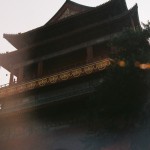
Is Feng Shui really friendly for all genders? While there is no question to the fact that it can invite some positive vibes into your home just by the mere art of rearranging your furniture and the orientations of your surroundings, it may actually reveal so much more about culture if one takes a good look at it.
For one thing, the Yin and Yang illustration is a very famous facet of Feng Shui. It simply states that opposites are necessary to be able to appreciate the beauty of things. You cannot appreciate the good without bad, light without darkness and so on. This theory of opposites and balance extends to the elements of the earth: water, wind, fire, wood and earth. These elements are also in balance if good Feng Shui is present.
Yin is often characterized with strength, viability and aggressiveness. More importantly, it is attributed to the masculine side of identity. On the other hand, weakness and femininity are interchangeably attributed to the Yang side, the softer side of things. Is this really a good thing? While it has been maintained that it is a world for the masculine, the main precepts of Feng Shui are actually more tailored to suit male, establishing them as the strong ones in the spectrum of life. “The philosophy of feng shui is a practice of looking at our living spaces and working environment and striking a balance with the natural world (https://www.thespruce.com/what-is-feng-shui-1275060).”
The Feng Shui concept is already organized in its scope. Any person you ask about Feng Shui may tell you its symbols: the bagua, the yin and yang diagram and the charms used by Feng Shui experts to cancel bad luck. However, the main concepts are not entirely original. The philosopher Heraclitus from Greece is credited for having first denoted the concept of having opposites. And consequently, psychology on colors and other visual media can also state some theories that are resonant with Feng Shui precepts.
Interestingly, there are more women drawn to the Feng Shui habit than men, who may or may not be conscious that they are actually supporting a form of belief system that establishes males as strong and females as weak. But other than the Yin Yang concept, there is no other outward manifestation of this gender bias.
Is it really a good thing to believe in Feng Shui and apply it? It really depends on the person who is asking and the background under which he or she is raised. If you are born in an open-minded culture which holds less restrictions on what you can and cannot do, the applying of Feng Shui may be a non-issue. Meanwhile, if you are under a movement that opposes the main beliefs of Feng Shui, you may have to make a more substantial choice of lifestyle changes.
Feng Shui also has its own Yin and Yang to speak of. If you are really intent on ruminating on the deeper aspects of Feng Shui, you may have to dig deeper beyond what you see on promotional materials and even hate literature against Feng Shui. For the most part, Feng Shui is quite harmless in nature and it does not really explicitly cause major changes in ones lifestyles or belief systems.
But if in case you choose to be more meticulous, you may find that analyzing beneath the layers of promotion of Feng Shui that there is more to it than just rearranging furniture.











